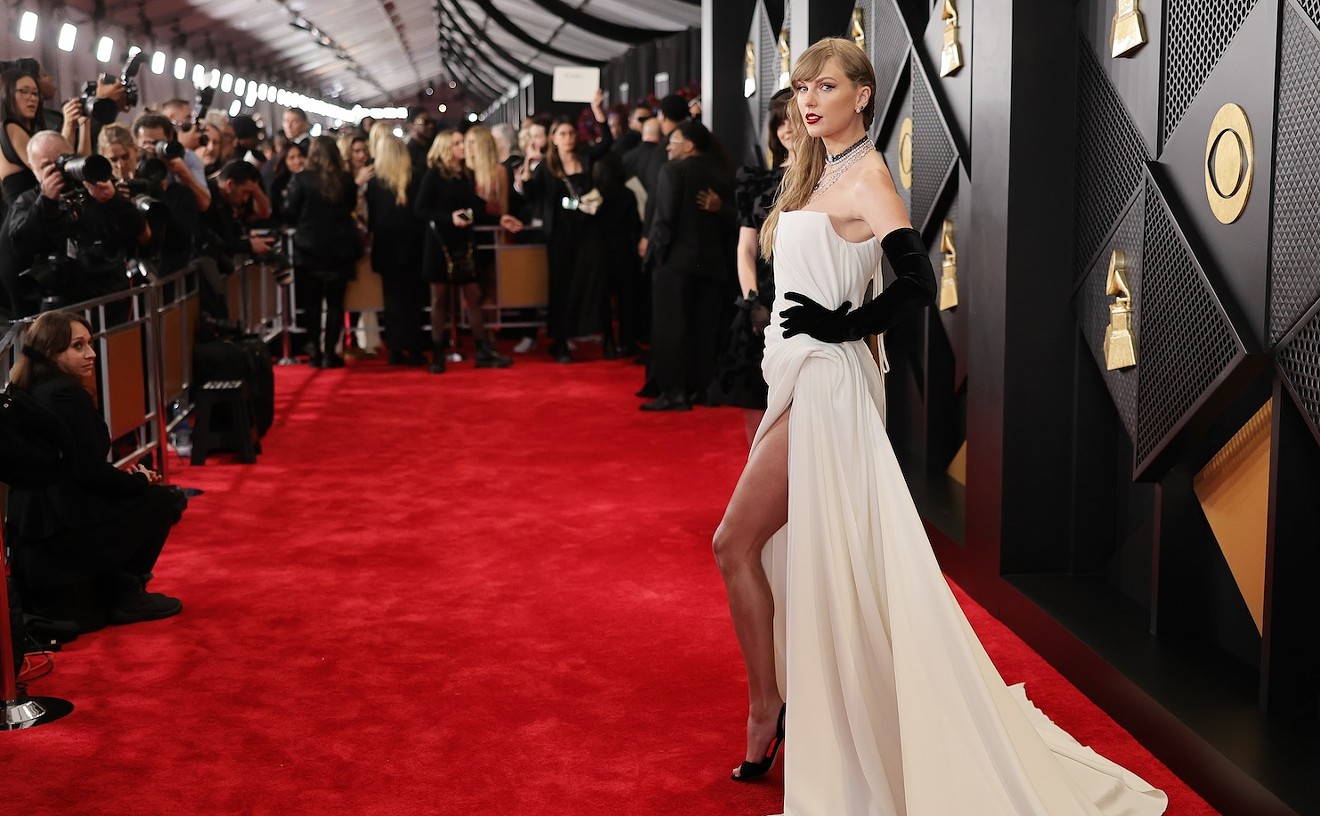Pumping the volume during marathon sessions at the Palladium, Tunnel, and the now legendary Sound Factory, Junior Vasquez was the driving force behind the revival of New York's club scene after the AIDS crisis nearly shut down the party in the late Eighties. Throughout the Nineties Vasquez challenged Mayor Rudolph Giuliani's Disneyfication of Manhattan by rallying a sweaty army of dancers who were black, Latino, and, most important to Vasquez and his audience, gay and unashamed. No mere record player, Vasquez reinvented songs, elaborating on a cappella tracks with his trademark drum rolls, obtuse references, and inhuman endurance. Over the past decade his ghetto call rolled across New York to the rest of the world. Older and wiser tonight, the tribal leader is unwilling to yield an inch of his territory.
The same raised booth that keeps the DJ safe from his disciples, however, also makes him an easy target for criticism. Reports from circuit-party regulars and those frequenting Vasquez's current club, Twilo, have hinted that Junior's time has passed.
"Well, I don't know who's saying that," the DJ responds by phone from his New York apartment three days before his show at Level. "I still have a following. I don't think my sound is dark or moody. I mean, this has probably been the best year of my career. Perhaps I've simplified things lately, but you can only play Hi-NRG house for so long. I'm being asked to play twelve-, thirteen-hour sets, so I have to give the crowd a variety, you know, educate and lead."
Convinced he has little left to prove in the club world, Vasquez has shifted his attention to the studio as DJ/producer. "Sometimes I feel I don't get respect for what I do," he says of the industry's view of DJs. "I'm doing a lot more than just remixing." Acutely aware that when the DJ lifts up the needle, he puts the record back in the sleeve of the original artist, Vasquez is determined to leave his stamp on the music. "I'm definitely getting more involved with production," he explains. "It's a totally different concept than spinning, but writing and producing are more my interest right now. My motivation comes from taking what I create in the studio and seeing what kind of response that gets on the dance floor."
1:56 a.m. A drum and bass onslaught drives the crowd deep into Junior's jungle. Dark and mechanical, the beats twist and turn like trapped animals. With one ear pressed into the headphones, Vasquez is stoic, his face focused. He is generating a sense of chaos on the dance floor just as he has engineered controversy in his career. Once the darling of New York's gay club tribe, Vasquez has recruited a much more diverse following. He has admitted in the past that "whereas most DJs have not been visible, I have." MTV, VH1 and Madonna tend to have that effect.
Artists hoping to crash the club party have often turned to Vasquez. As gatekeeper to the dance floor, his approval has ensured the success of dance tracks by artists such as Madonna, Cher, Annie Lennox, and Cyndi Lauper, while his disapproval has led to many a downfall.
After so many years does he ever lose interest? "Not with the material, no," Vasquez says with a hint of resignation. "I'll always be in the dance genre, but certain sounds are overplayed. It's my job to introduce things, be a trendsetter, and you can only listen to trance for so long before you get bored with it."
2:35 a.m. Level's crowd has gone from gay and local to mixed and international. Vasquez splices vocals into his instrumental prelude, appeasing those who prefer his familiar diet of divas to hard breaks and trance. Mixing the masculine with the feminine is the hallmark of Vasquez's style. Laying a woman's voice over the testosterone beats of mechanical percussion, the DJ created an asexual language that seduced the gay scene and turned on more than a few open-minded straight folk. But now Vasquez is on to the next sound.
"I guess what I'm doing now I would call recycling," he says. "It's what we're [DJs] left to do. I'm going far back, though, to like the Sixties and mixing old Four Tops stuff. You could call it retro-ish. I won't say I'm bored or burned out but just in need of a change. Lately I've been going back to my roots, which is really Chicago house."
3:00 a.m. A continuous flow of dancers, drag queens, and card-carrying VIPs mill about the velvet ropes leading to the DJ booth. It's a scene that recalls Andy Warhol and his Superstars, another movement that was never truly accepted by the art establishment. But this is Junior's world; to distance himself from the queer and curious would be to cut himself off from his base.
Sometime after 3:30 a.m. The menace of mechanized drums attacks altered human voices in a sound at once futuristic and primal. Vasquez smiles. He's mastered tribal/vocal and could care less about trance. He's been kitschy, catty, and pop -- and he knows better than to stray from his roots. For Vasquez the Sound Factory never closed. The party begins again every time his delicate fingertips touch wax.
"Did the club scene peak back then?" Vasquez asks of the Nineties, the decade that made him a star. "No, I don't agree with that. I think we hit 2000 and everyone was looking for the next direction. Music, fashion, things like that are in that middle-of-the-road pattern, and I think we have to wait until 2005 or so to see where it's going." As if there were any doubt, he announces, "I have no intention of stepping down."










